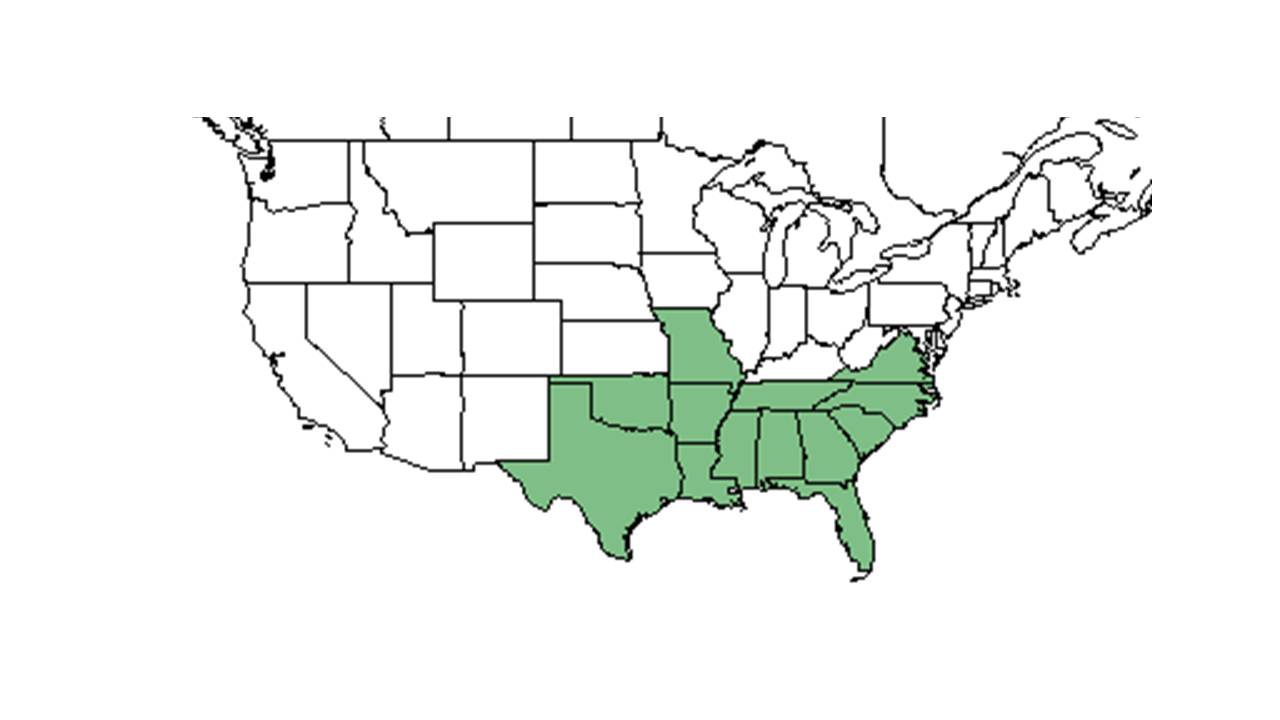Difference between revisions of "Paspalum bifidum"
| Line 27: | Line 27: | ||
===Phenology=== <!--Timing off flowering, fruiting, seed dispersal, and environmental triggers. Cite PanFlora website if appropriate: http://www.gilnelson.com/PanFlora/ --> | ===Phenology=== <!--Timing off flowering, fruiting, seed dispersal, and environmental triggers. Cite PanFlora website if appropriate: http://www.gilnelson.com/PanFlora/ --> | ||
| + | This species has been observed flowering and fruiting from August to October (FSU Herbarium). | ||
| + | |||
===Seed dispersal=== | ===Seed dispersal=== | ||
===Seed bank and germination=== | ===Seed bank and germination=== | ||
Revision as of 20:12, 20 July 2015
| Paspalum bifidum | |
|---|---|

| |
| Scientific classification | |
| Kingdom: | Plantae |
| Division: | Magnoliophyta - Flowering plants |
| Class: | Liliopsida – Monocotyledons |
| Order: | Cyperales |
| Family: | Poaceae ⁄ Gramineae |
| Genus: | Paspalum |
| Species: | P. bifidum |
| Binomial name | |
| Paspalum bifidum (Bertol.) Nash | |

| |
| Natural range of Paspalum bifidum from USDA NRCS Plants Database. | |
Contents
Description
Common name: pitchfork crowngrass
Distribution
Ecology
Habitat
This species can be found growing in longleaf pine-scrub oak sand ridges, sandhills, mixed woodlands, and open longleaf pine forests on rolling terrain (FSU Herbarium). It has been observed in dry loamy sands and moist hummus-rich soils in open areas (FSU Herbarium). P. bifidum can also grow in disturbed areas such as along dirt roads and bottomland clearings along rivers (FSU Herbarium). It was a selected plant in the Palustris Experimental Forest in central Lousiana – a representative of the lower coastal plain – second growth longleaf pine (Pearson et al. 1982).
Phenology
This species has been observed flowering and fruiting from August to October (FSU Herbarium).
Seed dispersal
Seed bank and germination
Fire ecology
Pollination
Use by animals
Diseases and parasites
Conservation and Management
Cultivation and restoration
Photo Gallery
References and notes
Pearson, H. A., H. E. Grelen, et al. (1982). Botanical composition and nutritive value of cattle diets on southern pine range. New Orleans, LA, USDA Forest Service, Research Paper SO-178.: 24.